Jody Wilson-Raybould says the federal government has cold feet when it comes to recognizing and implementing Indigenous rights.
The former Liberal justice minister and attorney general told leaders from the First Nations Justice Council in Richmond, B.C. Wednesday that despite Prime Minister Trudeau’s promises of reconciliation, “the federal government has fallen back once again into a pattern of trying to manage the problem of Indigenous peoples and making incremental limited shifts instead of transforming the status quo.
“In my view, it is never appropriate or proper to have as a goal managing the challenges and the byproducts of colonialism,” she told the room of almost 200 gathered for the first annual First Nations Provincial Justice Forum.
Wilson-Raybould, who was kicked out of the Liberal caucus alongside former Indigenous services minister Jane Philpott earlier this month after the two spoke out against senior government officials’ behaviour related to the SNC-Lavalin affair, said a directive she issued on civil litigation for Indigenous peoples and her work toward an Indigenous rights framework were met with significant resistance within cabinet.
She said while the government is making small and important strides on things like Indigenous policy reform, fundamental change is required, including “the basic Crown recognition of Indigenous title, rights and governments.”
Jody Wilson-Raybould says she met resistance within government from “some, who importantly did not and perhaps still do not realize that uncertainty, conflict and unpredictability arise as the denial of rights, not because of their recognition.” Laurie Hamelin/APTN
Following Trudeau’s Feb. 14, 2018 speech in the House of Commons, when he promised sweeping legislative reform on the recognition and implementation of Indigenous rights, Wilson-Raybould said she thought the changes would “happen imminently.”
“As you all know this has not occurred, and I fear we may have temporarily fallen back into a less audacious, less meaningful conversation and mode of work that, while perhaps more comfortable, will not achieve the transformative space that is required,” she said.
The former Assembly of First Nations regional chief for B.C. praised First Nations’ work on justice reform in their own communities and said the need for a directive to reform how the government handles civil litigation involving Indigenous peoples “speaks volumes to the much more foundational challenges we still face.
“The patterns of perpetual, expensive and seemingly endless litigation that we’ve fallen into is a symptom of a much deeper dilemma rooted in the history of our country and about how the law and the justice system has operated,” she said.
On the issue of Indigenous rights, Wilson-Raybould said there was a fear that recognizing and implementing those rights could have negative economic consequences.
“Some, who importantly did not and perhaps still do not realize that uncertainty, conflict and unpredictability arise as the denial of rights, not because of their recognition,” she said.
Philpott also addressed delegates Wednesday, praising their work on justice reform for First Nations peoples and emphasizing the need to continue pushing “for the full implementation of the United Nations Declaration on the Rights of Indigenous Peoples as well as the [Truth and Reconciliation Commission] calls to action.”
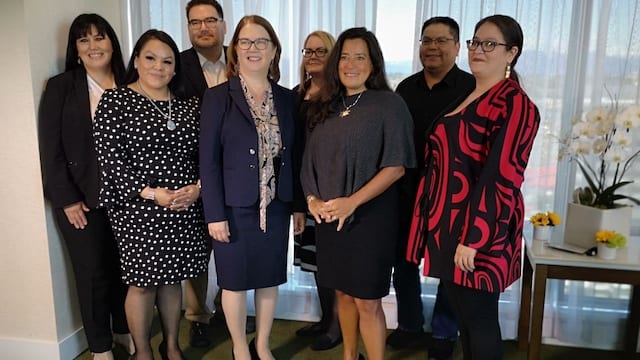
Jane Philpott and Jody Wilson-Raybould pose for a photo with members of the B.C. First Nations Justice Council. Justin Brake/APTN.
Following the speeches the justice forum held an Honouring Ceremony for Philpott and Wilson-Raybould.
Forum Chair Doug White called the women “two remarkable individuals…[who] have demonstrated with great clarity that it doesn’t matter what caucus you’re in, what party you’re in, whether you’re a minister or not, that what we need and what we crave in these kinds of defining moments is clarity of leadership, purity of resolve and commitment to basic principles, the rule of law — that we can find a principled way through to craft a different future.”
Following their speeches at the provincial justice forum in Richmond, B.C. Wednesday, and were honoured in ceremony. pic.twitter.com/4LGZ2GhR4L
— Justin Brake () April 25, 2019
Addressing the former cabinet ministers and the delegation in a pre-taped video message, Grand Chief Stewart Philip of the Union of B.C. Indian Chief noted what Wilson-Raybould and Philpott have experienced in Ottawa represents “a very dark underside to the federal government which has characterized government through the colonization and neocolonial period.
“We’re so proud that both Jody and Jane stood up to that, spoke out publicly, were certainly on the right side of history,” he said.
“On behalf of the Okanagan Nation we want to express our deep gratitude on behalf of our children, our grandchildren, and future generations. You’ve done a tremendous service to the Indigenous Peoples of this country, you’ve set a very high standard, and you’ve inspired our people from coast to coast to coast.”






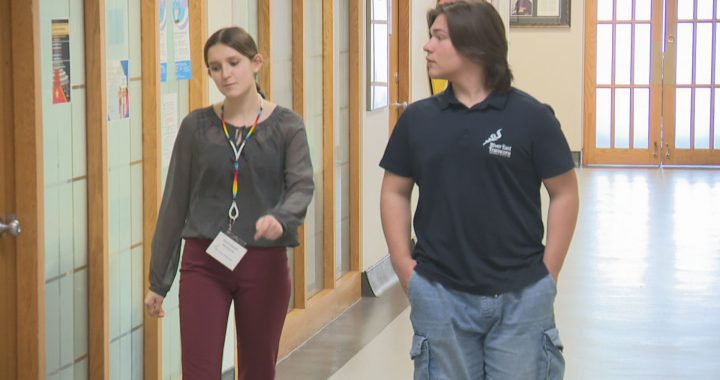
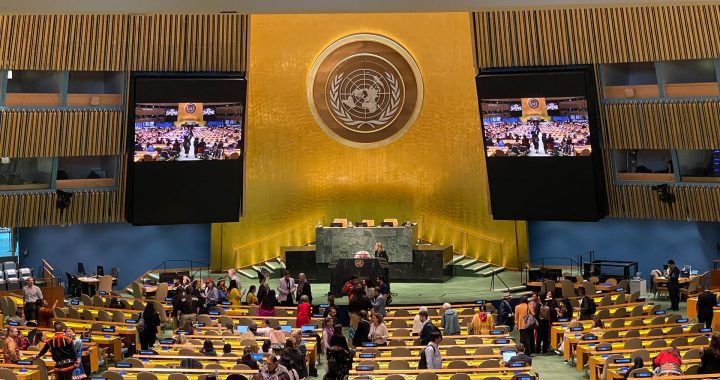
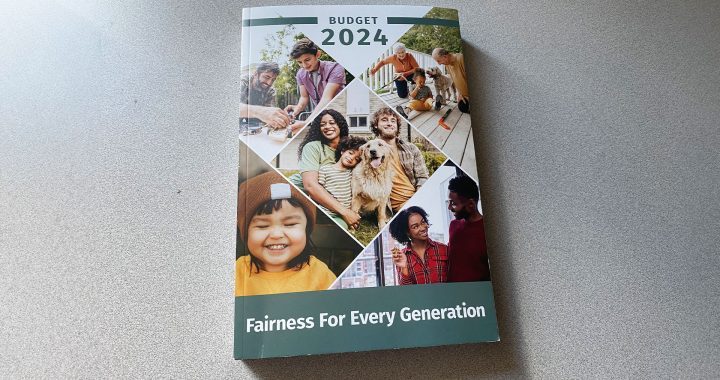
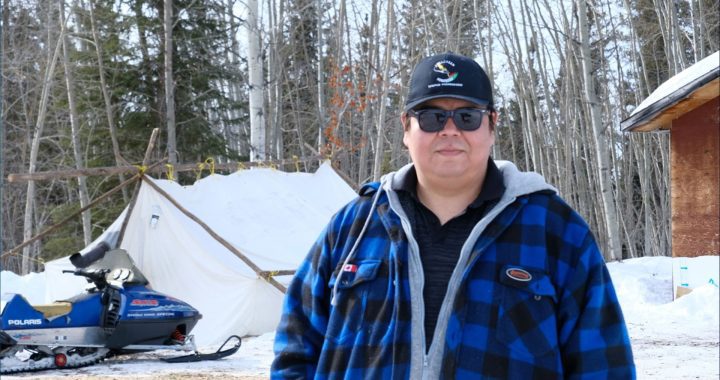
Real change will most certainly have economic consequences for Canada. Unfortunately, right wingers all understand that fact and are fighting against it even as they refused to speak directly about it. Justice has no place on their plate.
l been telling people this for months before l heard it here, the
SNC labeling affair was only the tip of the iceberg. She knows her stuff.